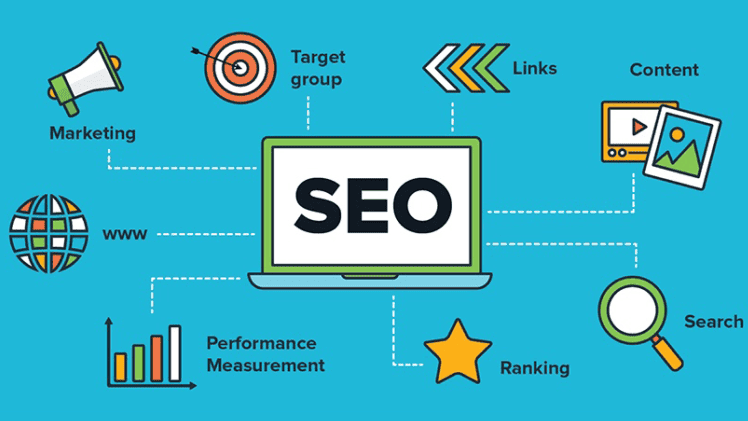Why WordPress Is Best for SEO
What is SEO?
SEO is the abbreviation of Search Engine Optimization. The primary objective of every web page is to drive more and more organic traffic. Google is the best source of getting traffic if your site is optimized. Google understands the language of keywords. It is very important for you to use relevant keywords. Relevant keywords make it easy for Google to interpret your site and give it a higher ranking.
What is WordPress?
Website design and development had never been so easy ever since the launch of WordPress platform in 2003. Now users can develop website within days by simple clicks. Before WordPress, Programmers used to site for months doing programming to develop websites tailored to the need of customers. But now this is done in days and you have the option to develop any kind of web sites. WordPress gives its users an All-in-one solution. You can create pages, posts, customized themes, menus, and most importantly best SEO for your website. That is why it is called “Content Management System”.
Why WordPress for SEO?
WordPress is best for SEO but why? The answer to this question can’t be explained in one sentence but in short, it gives you an instant report of your page and post SEO. In WordPress, you do everything with Plugins. Plugins are tools that enhance the functionality of your website. That is why using a plugin you can get instant reports about your page SEO and can instantly modify it to improve SEO. It is important to note that SEO is not a word but a mechanism. It is very important to use this mechanism effectively in order to get the desired results.
You need to understand what are the reasons that make WordPress the best platform for your site SEO.
Below are 10 Reasons Why Search Engines Love WordPress:
1.User Experience:
Websites are developed for users, so it is important to have an attractive and user-friendly website. This forces users to stay longer. A good experience will compel visitors to visit again thus building a relationship of trust and loyalty. A great user experience enhances SEO of your website as well. WordPress has plenty of themes and plugins. There are customized themes. Whether your website is eCommerce, blog, traveling, education, or whatever you can get themes of your choice. The customized themes help you to enhance user experience.
2.Permalinks:
Permalinks is a very interesting and effective tool for WordPress. Normally they are lengthy but in WordPress, you can choose permalink of your own choice. Even you can put keyword in your permalink. This not only gives an attractive look but also enhances the SEO of your website. For example, if you have a post related to 10 health tips, you can change your permalink accordingly like:
Xyz.com/10-health-tips
Now, this not only refers to the content but also contain relevant keywords.
3.Relevant Metadata:
Whenever someone enters a query in Google, it explores its database and displays relevant information. This is done by analyzing the metadata of websites. WordPress gives you the flexibility to edit and manage metadata by entering relevant keywords. It becomes easy for Google to interpret your page content and ultimately have a positive impact on your site SEO. However, in WordPress, it is very easy to enter and manage metadata with a plugin such as Yoast SEO.
4.Image Optimization:
WordPress is best because you can optimize images as well. Its “Alt Text” features enable users to put relevant keyword, or you can use plugin that automatically generates “alternative text”. Images are important to enhance the understandability and readability of your webpages. You can also optimize the speed of your web page by resizing your images.
5.Site Speed:
Slow speed irritates users and force user to leave your site early. However, WordPress allows you to improve your site speed with plugins. One such plugin is WPOptimize that improves your site speed and decrease site load time.
6.Mobile Users:
Mobile Usability is the best feature of WordPress. Majority of internet users worldwide are using mobiles. Smartphones has enabled users to access websites easily. They don’t need to use laptops. The best thing about WordPress is that you don’t need to do anything special for mobile optimization. WordPress themes are already optimized for mobile users. The majority of traffic for websites comes from mobile users.
7.Social Media Integrate:
Social media is an important source of traffic. No one can deny this reality. Millions of users today relate to social media accounts. Many people now get updates on social media through ads or news feeds. It is very important now to understand the importance and target social media audience as well. However, if you are using WordPress, you don’t need to worry. Its features allow you to integrate all your social media accounts, so all your posts automatically publish on your social media accounts. Apart from that, you can direct your users to your social media accounts by providing a link on your site. All popular social media accounts can be integrated such as Facebook, Twitter, LinkedIn, Twitter, etc.
8.SEO Plugins:
You don’t need to get any technical knowledge of SEO if you are using WordPress because it provides the world’s best plugins that do everything for you. Such popular plugins are Yoast SEO and Google Analytics. Yoast SEO helps you put many relevant keywords and helps you write readable and SEO optimized content. However, some of the advanced features are not available for free. You can create XML sitemaps which are very important for Google crawlers. For SEO, it is important to submit a sitemap to Google so that its crawlers can detect your site and index it in its database.
9.SEO Friendly Themes:
A beautiful and attractive web design also enhance the SEO of your website. By using WordPress themes, you don’t need to do anything extra, themes are already optimized. So, it is easy for Google to give you a higher ranking based on SEO.
10.Integration with other software tools:
WordPress sites are easy to integrate with any software tools, for example, G Suite that is best for documents, spreadsheets, and emails.







